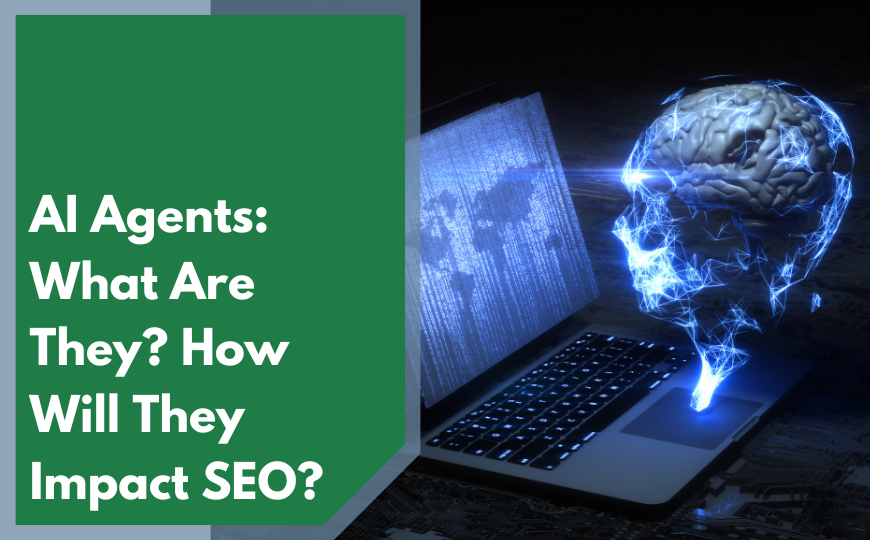The landscape of search is shifting at an unprecedented pace. AI-powered search engines, conversational interfaces, and multimodal search technologies are redefining how businesses and consumers alike find their information. Traditional search engine rankings are becoming just one piece of a much larger puzzle. The new “real estate” in search includes AI-generated summaries, knowledge panels, interactive search experiences, and context-aware recommendations in real-time.
For decision-makers who rely on search visibility to get their business out there, understanding these AI-driven technical advances is critical. Those who fail to adapt risk losing leads in favor of brands that optimize for AI-powered search. This article explores the major advancements in AI search technology and how your business can secure its digital presence in this new era.
What AI Advances are Impacting Search?
1. AI-Powered Knowledge Panels & Entity-Based Search
AI is moving beyond simple keyword matching into entity recognition. Google, Bing, and OpenAI in particular are refining how they interpret search queries, giving preference to content that aligns with recognized entities. Knowledge panels are powered by structured data and entity recognition systems, many of which now leverage AI to improve accuracy, context, and topical relevance.
For your business, this means that becoming an entity in AI-driven search ecosystems is more valuable than merely ranking for keywords. Make sure your brand’s digital footprint is well-structured with schema markup, establish strong citations across trusted sources, and secure backlinks from authoritative sites. These actions help search engines associate your brand with recognized entities, increasing your chances of appearing in AI-powered knowledge panels. Additionally, consider creating a Wikipedia page, claim business listings, and ensure your brand data is consistent across directories.
2. Multimodal Search: Text, Voice, Image, and Video
AI-driven search is no longer confined to typed text queries. Google Gemini, Bing Copilot, and ChatGPT are integrating multimodal search capabilities to allow users to search using voice commands, images, and videos. These new formats are critical areas to optimize for—or you risk missing a significant portion of AI-generated search traffic.
To optimize for multimodal search, start by implementing structured metadata for images and videos. Then optimize for voice search by creating conversational, question-and-answer-based content and enhance video SEO with transcripts, subtitles, and time-stamped metadata. Ensure product descriptions are enriched with structured data, alt attributes, and descriptive metadata to support AI-enhanced product search through visual and voice interfaces.
3. AI-Generated Summaries and Zero-Click Searches
AI search features, including summaries and rich snippets, are contributing to the growing trend of zero-click searches, where users receive answers without leaving the search interface. This means you must optimize for structured, extractable content that AI search engines can pull into direct answers.
To be featured in AI summaries, format content with clear and concise headings and subheadings, use bullet points and numbered lists where appropriate, and ensure content is fact-driven and well-structured with easy language for AI models to parse. Schema markup should also highlight key information for AI extraction. Overall, focus on crafting engaging introductions and key takeaways that are designed for AI-generated snippet selection.
4. AI Search Assistants & Conversational Search
As AI assistants like Google Gemini, Bing Copilot, and ChatGPT become more sophisticated, they are increasingly being used as search engines in their own right. These AI assistants are supplementing traditional search by offering conversational, context-aware experiences—especially in research and discovery phases.
To appear in AI-powered search assistants, develop conversational content that aligns with AI-driven query patterns, focus on structured data and entity-based SEO to improve retrieval accuracy, and maintain an authoritative online presence through digital PR, expert citations, and high-quality backlinks. Also, don’t forget to explore integrating AI chatbots into your own digital platforms to provide real-time AI-assisted customer interactions.
Where is the New Digital Real Estate in AI Search?
1. Where is AI Allocating Search Visibility?
Like in housing real estate, location is everything for visibility with AI-driven search engines. AI-driven visibility now includes high-value placements such as knowledge panels, featured snippets, AI-generated summaries, and positions within conversational responses from virtual assistants and chatbots. AI search models are also increasing the frequency of zero-click searches.
For your business, this means that your focus should shift from merely ranking on SERPs to securing visibility in AI-driven search experiences. It’s time to embrace strategies that prioritize AI-driven search signals, including structured content, real-time updates, and in-depth knowledge representation across digital ecosystems.
2. How Do You Invest in AI-Optimized Content?
To secure valuable AI-driven search real estate, start by optimizing your knowledge graph presence by taking the steps already listed—use structured data and authoritative citations, develop content that is structured for AI summaries and snippet extraction, and enhance multimedia assets with AI-friendly metadata and video SEO. Focus on building leadership and entity authority to improve your overall AI search relevance.
Additionally, take the time to explore AI-powered content personalization strategies, ensuring that dynamic content delivery aligns with AI-driven user intent recognition. The integration of AI-powered tools into content marketing efforts will improve engagement and enhance your brand’s position in AI-generated search results.
Ready for the Next Phase of AI Search?
The AI-driven search era is here, and you don’t want to lose visibility to competitors who embrace these changes. As AI search engines prioritize structured data, multimodal content, entity-based SEO, and conversational AI, it’s time to take proactive steps to align your digital strategy with the AI-powered search advancements that will dominate search visibility in the coming years.
The good news is that as you continuously monitor AI-driven search trends, experiment with emerging AI-powered search interfaces, and refine your SEO strategies to keep pace with evolving AI capabilities, you are future-proofing your digital presence and maintaining a competitive edge within the industry.
Is your business ready for the next phase of AI search? Ensure your brand is positioned for AI-driven visibility by booking an AI SEO Maturity Audit with our team of AI SEO experts at DirectiveGroup today.






